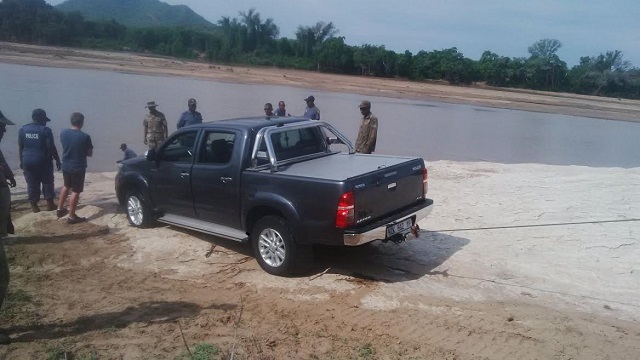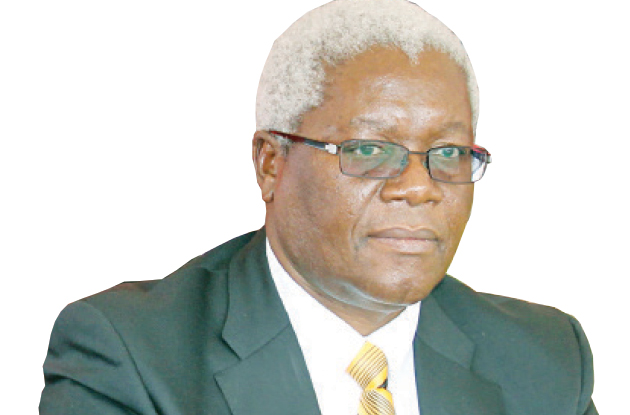EDITORIAL COMMENT: Smugglers across the Limpopo must be defeated

The Limpopo River is one of southern Africa’s biggest waterways. It is wide and extremely deep in places. It is infested with hippos. Also, it is home for a floats upon floats of crocodiles, hence people in southern Masvingo Province used to call the river Gurugudhera, a corruption of the name “crocodile” which recognises the heavy presence of the man-eating reptiles.
Its expansive width, depth and the presence of the crocodiles have however failed to stop criminals from running smuggling syndicates across the river.
Given the established nature of the racketeering, it appears the criminals are often a step ahead of law enforcement agents.
Their activities are contributing to the prevailing economic challenges that the country is facing. Much money that should accrue to the fiscus as customs duty isn’t as the syndicates spirit various goods into the country, even vehicles. They use boats laden with their merchandise back and forth. On both sides, cars and animal-drawn carts would be waiting, sometimes in broad daylight to move the items further inland.
In other cases, people risk their lives moving illegally across into South Africa in search of the so-called greener pastures. It appears that the points the smugglers prefer to use are very well known.
In this issue, we publish a story on our front page which shows that the criminals are using inflatable boats to beat the high waters on the river after the heavy rains that have been falling in recent weeks. The syndicates, working in cahoots with villagers in Makakavhule area about 30km west of Beitbridge, traffick people both ways and a wide range of banned commodities into our country for fees ranging between R100 and R500.
At Makakavhule our newscrew observed a kombi pulling out of an illegal crossing point carrying a consignment of beer, groceries and tyres.
Our investigation, the latest in a series, showed that the activities occur at night and during the day, regardless of the fact that security personnel are always deployed along the border to stamp out the crime.
We spoke to one of the suspected smugglers, who typically refused to be named, saying that the minimum they charge to move someone to the South African side is R100. He actually had the temerity to brag about his rich pickings from the crime.
“I make a lot of money from undocumented travellers because the river is in flood. I have a boat which I bought in South Africa which I use to smuggle border jumpers and goods from South Africa. I charge a minimum of R100 but in January the fees were higher because there was a lot of demand as most people were trekking back after the Christmas holiday,” he said.
We recognise the work that our law enforcement agents are doing to deal with this crime, but demand that they intensify their efforts. We noted earlier that the points that are often used are well known and that the criminals use clear approach roads. This should be easy for police and their colleagues in the security sector to give good attention on these places to be able to nail the smugglers.
It must be a little easier to police a border that has a natural barrier like the crocodile-infested river where someone cannot simply move across using every point they chose. They have to choose shallower points which is unlike walking on land into Mozambique from Zimbabwe, for instance. It should thus be comparatively easier when it comes to illegal traffic between Zimbabwe and South Africa as the river does some of the work for law enforcers.
To be on top of the game, the police must be mobile as well as the people they are charged with chasing use vehicles too.
Home Affairs Deputy Minister Cde Obedingwa Mguni recently told the Senate that the Government was aware of people who crossed into South Africa via the Limpopo River and drones would soon be deployed.
“We are bringing in the drones that are able to fly, patrolling along the border. We have an inter-ministerial committee involved. Finance and other ministries like the Ministry of Mines are now buying those machines so that they can fly to take care of those boundaries to see who is crossing so that we search for those people,” he said.
An aerial presence should help greatly for the area in question is forested here and there and also that part of it is a river. This technology should be put into service as soon as possible so that the loss of revenue and that of lives through drowning and crocodile attacks is stopped.
The people living along the border on our side should also be educated on the need for them to not only desist from smuggling but also for them to co-operate with law enforcement agents.










Comments